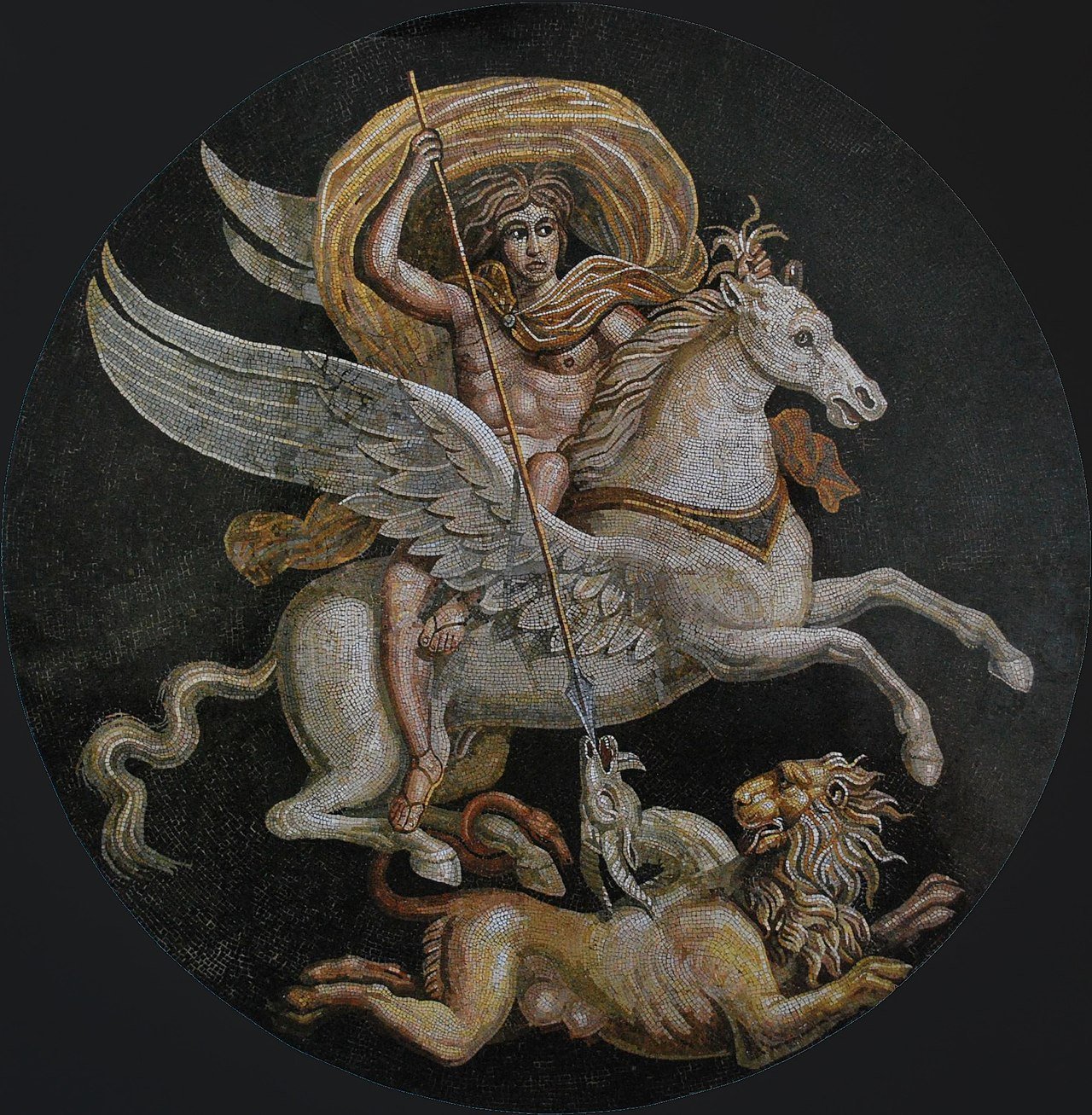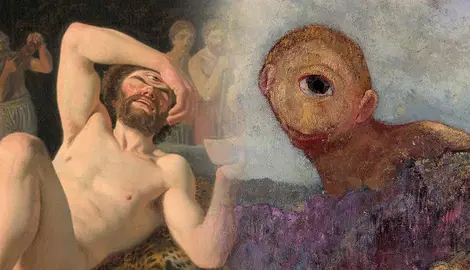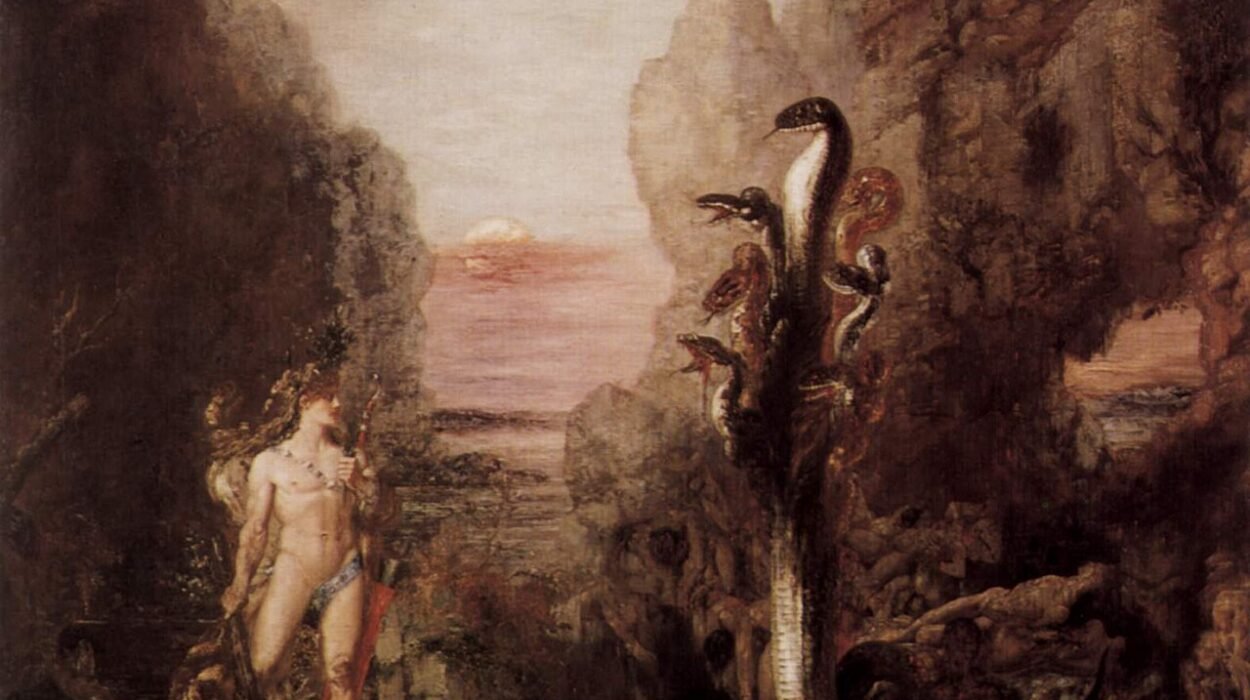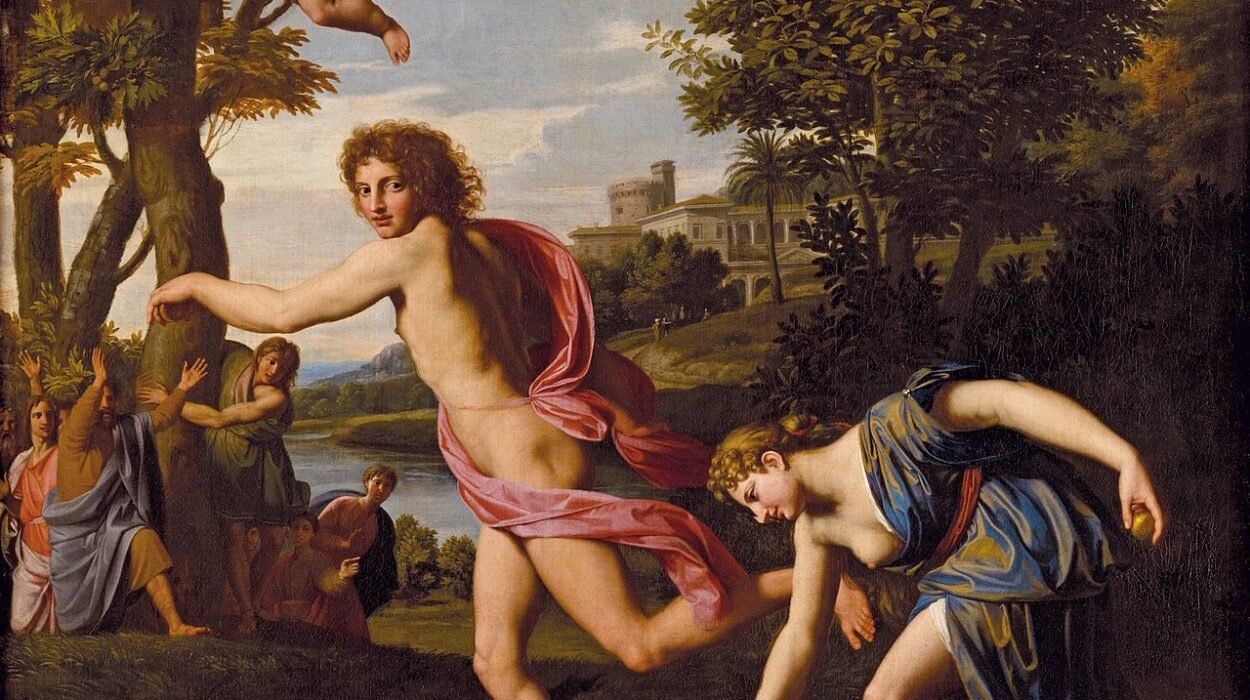Among the countless tales spun by Greek mythology, few shine as brightly or capture the imagination as vividly as the story of Bellerophon and Pegasus. It is a tale that rises from the mists of ancient storytelling, where mortals dared to dream of gods, where heroes tested their courage against monsters, and where impossible creatures soared across the heavens. This legend is more than just an adventure; it is a reflection of the human spirit—ambition, courage, triumph, and the peril of overreaching pride.
The story of Bellerophon and Pegasus belongs to the rich tapestry of myths that once guided ancient Greek culture. It is not just about a warrior and a horse—it is about the delicate balance between mortal aspiration and divine power. Through this tale, the Greeks explored questions of fate, hubris, and the limits of human achievement. Yet at its heart, it is also a story of wonder: a man who tamed the untamable, and a horse born not of earth, but of the gods themselves.
The Birth of Pegasus
Every legend has an origin, and the birth of Pegasus is one of the most extraordinary in all of mythology. Pegasus was not born like other creatures. His life began in violence, magic, and divine mystery. According to the myth, the hero Perseus beheaded the monstrous Medusa, one of the three Gorgon sisters whose gaze could turn men to stone. From Medusa’s severed neck sprang two beings: Chrysaor, a warrior giant, and Pegasus, the magnificent winged horse.
Pegasus emerged as a creature of pure wonder—white as snow, radiant as the morning sky, and graced with wings that shimmered with divine light. Unlike any earthly horse, Pegasus was born from blood and divinity, carrying within him the essence of both tragedy and majesty. He was destined to fly across myths, not just as a beast of war, but as a symbol of inspiration, freedom, and untamed power.
In many Greek stories, Pegasus was also connected with the gods themselves. He became sacred to Zeus, king of the gods, who later entrusted Pegasus with carrying his thunderbolts. From the very beginning, Pegasus embodied a bridge between mortal heroes and the divine realm.
Bellerophon: The Mortal Hero
While Pegasus was a creature of the gods, Bellerophon was a mortal—though one touched by destiny. Born in the city of Corinth, Bellerophon was said to be the son of Glaucus, king of Corinth, but some versions of the myth suggest that his true father was none other than Poseidon, god of the sea and horses. This possible divine lineage explained his natural affinity for Pegasus, a horse born of the gods.
Bellerophon’s early life was marked by tragedy and exile. After accidentally killing his brother (or, in some stories, a close relative), he fled Corinth in search of purification, as was the custom in Greek society. His journey eventually brought him to the court of King Proetus of Tiryns. Here, Bellerophon’s fate began to intertwine with Pegasus and with one of the greatest challenges ever set before a hero.
The Quest for the Winged Horse
Pegasus was no ordinary horse. Free and untamed, he roamed the earth and sky, beyond the reach of mortal men. Many dreamed of capturing him, but none succeeded—until Bellerophon. Guided by prophecy and divine favor, Bellerophon sought the winged horse, knowing that only with Pegasus could he hope to achieve greatness.
The goddess Athena, always the patroness of heroes, appeared to Bellerophon in a dream. She offered him a golden bridle, a gift of divine craftsmanship that would allow him to tame Pegasus. When Bellerophon awoke, the bridle lay beside him, proof that his vision had been real.
With Athena’s gift in hand, Bellerophon sought out Pegasus, who drank from the sacred spring of Hippocrene on Mount Helicon. This spring itself was said to have been created by Pegasus when he struck the earth with his hoof, causing water to gush forth. Approaching with reverence, Bellerophon placed the golden bridle upon the winged horse. To the amazement of all, Pegasus submitted, and man and horse became one.
This moment was more than a conquest; it was a union of mortal courage and divine grace. Bellerophon had achieved the impossible—he had won the trust of a creature born of gods. Together, they would embark on adventures that echoed through the ages.
The Chimera: A Monster of Fire and Death
Bellerophon’s greatest challenge came not long after he tamed Pegasus. Queen Stheneboea, wife of King Proetus, had fallen in love with Bellerophon. When he rejected her advances, she accused him of dishonoring her. Enraged but unwilling to kill a guest outright, King Proetus sent Bellerophon to his father-in-law, King Iobates of Lycia, carrying a sealed message.
Unbeknownst to Bellerophon, the message contained instructions for Iobates to kill him. But rather than risk divine anger by killing a guest, Iobates devised an impossible task: he ordered Bellerophon to slay the Chimera, a monstrous beast that terrorized Lycia.
The Chimera was no ordinary enemy. She was a fire-breathing creature with the body of a lion, the head of a goat rising from her back, and a serpent for a tail. Born of the monstrous union of Typhon and Echidna, the Chimera was a nightmare made flesh, invulnerable to ordinary weapons and feared by all.
Yet Bellerophon had Pegasus. Mounting his winged steed, he soared high above the Chimera, safe from her fiery breath. From the skies, he rained down arrows upon the beast, but her hide was thick and resistant. Finally, in a feat of cunning, Bellerophon attached a block of lead to his spear. As Pegasus dove close, Bellerophon thrust the spear into the Chimera’s throat. The creature’s fire melted the lead, suffocating her from within.
With Pegasus, Bellerophon achieved the impossible—he slew the unkillable. His victory brought him fame, glory, and the admiration of all Greece.
Trials and Triumphs Beyond the Chimera
The slaying of the Chimera was only the beginning of Bellerophon’s trials. King Iobates, still bound by the command to kill him, set further impossible tasks. He ordered Bellerophon to battle the fierce Solymi tribe, then the formidable Amazons, a race of warrior women unmatched in combat.
Once again, Pegasus gave him the edge. From the skies, Bellerophon rained down destruction, defeating enemies that no other mortal could withstand. In yet another test, Iobates laid an ambush of Lycian warriors, but Bellerophon, mounted on Pegasus, overcame them all.
At last, realizing that Bellerophon was protected by the gods, Iobates abandoned his schemes. Instead, he embraced the hero, offering him his daughter’s hand in marriage and half his kingdom. For a time, Bellerophon knew honor, wealth, and peace.
Hubris and the Fall
Yet the story of Bellerophon is not one of eternal triumph. Like many Greek heroes, his tale is also one of downfall. Empowered by his victories, beloved by mortals, and bonded with a divine steed, Bellerophon grew arrogant.
His pride led him to believe that he deserved a place among the gods themselves. In his hubris, he mounted Pegasus and attempted to fly to Mount Olympus, the home of Zeus and the immortals. It was an act of audacity, a mortal challenging the boundary between human and divine.
Zeus, angered by this presumption, sent a gadfly to sting Pegasus. The winged horse bucked violently, throwing Bellerophon back to earth. Some versions say he fell to his death; others say he survived but was crippled, left to wander the earth in misery, shunned by both gods and men.
Pegasus, however, did not share his rider’s fate. The divine horse completed his flight, reaching Olympus, where Zeus welcomed him. Pegasus became immortal, carrying Zeus’s thunderbolts and living among the gods. Later, as a reward for his service, Zeus placed Pegasus among the stars, where he remains to this day as the constellation Pegasus.
Symbolism of the Myth
The legend of Bellerophon and Pegasus is not merely a tale of adventure—it is a parable about the human condition.
Pegasus represents inspiration, freedom, and divine favor—the soaring of the human spirit toward greatness. Bellerophon, meanwhile, represents the duality of human ambition: capable of extraordinary achievements, but vulnerable to pride and overreach.
The slaying of the Chimera symbolizes the triumph of courage and intellect over chaos and destruction. Yet Bellerophon’s fall warns of the dangers of forgetting one’s limits, of aspiring beyond what is mortal. The Greeks believed deeply in the concept of hubris—excessive pride that leads to downfall. In Bellerophon’s fate, they saw a lesson: greatness must be tempered with humility.
Pegasus in Later Traditions
Though Bellerophon fades into tragedy, Pegasus endures. The winged horse transcended Greek myth to become one of the most enduring symbols in Western imagination. Poets and artists across centuries saw Pegasus as the embodiment of inspiration. The image of Pegasus striking the spring of Hippocrene became a metaphor for poetic creativity, a fountain of inspiration flowing from the heavens.
In Roman mythology and later Renaissance art, Pegasus symbolized wisdom, fame, and artistic achievement. In modern times, Pegasus continues to soar—in literature, film, and even as an emblem of speed, strength, and beauty. He remains one of the most beloved figures of Greek mythology, a reminder of the wonder that lies within stories of gods and heroes.
The Eternal Flight
The story of Bellerophon and Pegasus is more than a myth—it is a mirror of human aspiration. It reminds us of the courage to face impossible challenges, the brilliance of inspiration, and the tragic danger of unchecked pride.
Bellerophon rose high, but he fell when he sought to rise too far. Pegasus, born of divine mystery, soared higher still, finding immortality among the stars. Together, they teach us that greatness is possible, but that it must be tempered with humility.
And so, when we look to the night sky and see the constellation Pegasus, we remember not just a horse of legend, but the timeless truth of myth: that human beings dream of flight, long for the divine, and, in our striving, create stories that outlive us all.






